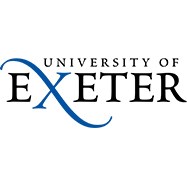Recognise world-class research centres, says Russell Group
24 December 2009
The future system for assessing research quality should recognise and reward centres with world-class capability, the Russell Group has urged.
Responding to the consultation on the proposed Research Excellence Framework (REF) to measure the quality of research, the Russell Group which represents the 20 leading universities in the UK has proposed several changes in the way it should operate, all designed to reinforce this emphasis on the highest quality work. The REF will replace the Research Assessment Exercise (RAE) as a basis for funding which amounts to £1.6 billion (for England) in the current year.
The Russell Group response points out that the government’s own Framework for Higher Education “Higher Ambitions” recognises that in a climate of scare resources public investment must be focused on strengthening research centres with world-class capability and that this should mean more concentration of research and resources.
The REF should reflect this framework in its assessment methodology, as well as in the method subsequently used to allocate funding, recognising and rewarding not only the very highest levels of excellence in research but also high concentrations of excellent research. It should avoid driving a growth in volume of lower quality research, said the group in its response to the Higher Education Funding Council for England (HEFCE).
“Higher concentrations of research excellence help to maximise the impact of research and provide a rich environment for training and developing post-graduate researchers. Critical mass within an institution is also the foundation for innovative, interdisciplinary research collaborations that are key to solving global challenges. The REF needs to recognise and reward such concentrations of excellence, particularly where this involves interdisciplinary collaboration.”
The Russell Group is broadly supportive of introducing a measure of social and economic impact of research, as universities have a responsibility to demonstrate the benefits arising from public funding. But it can be decades before a piece of research bears fruit and the process of turning research into a groundbreaking invention is complex and unpredictable.
The time lag between research and its economic or social impact is frequently more than 20 years and this should be recognised if there is to be a limit. The group also raises concerns about how impact should be attributed when several organisations and individuals are involved over a long period of time.
The Russell Group looks to the pilot projects on impact being set up by HEFCE to address these problems but believes it would be risky to give impact too much weight in the overall assessment. Demonstrating a high-quality research environment – including an assessment of the critical mass of leading researchers and state of the art facilities – should be equally important.
The document welcomes the proposed key features of the REF as a fundamental part of the UK’s dual support system for research funding.
Response to second HEFCE consultation on the Research Excellence Framework
-
Hamir Patel
hamir.patel@russellgroup.ac.uk
020 3816 1316
-
Stephanie Smith
020 3816 1310
 X
X


